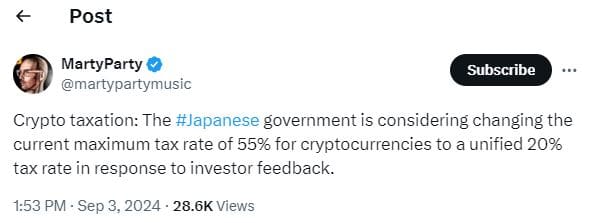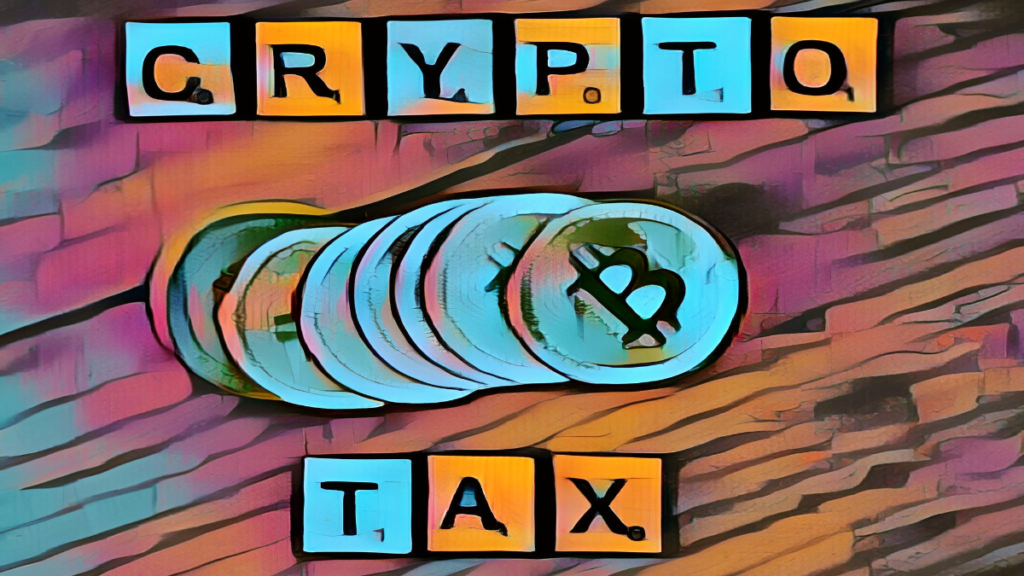ARTICLE AD BOX

Japan’s Financial Services Agency (FSA) is making significant moves toward a more favourable tax regime for cryptocurrency assets. In its recent proposal for fiscal year 2025, the FSA has called for the revision of tax policies surrounding crypto, advocating for it to be treated similarly to traditional financial assets. This push is part of a broader effort to encourage public investment in the digital asset space and modernize Japan’s regulatory framework for crypto taxation.
 Source: MartyParty
Source: MartyPartyCrypto Taxation to Align with Traditional Financial Assets
In a statement issued on August 30, the FSA outlined the need to reconsider the tax treatment of cryptocurrency transactions. The agency argues that digital assets should be categorized as financial assets, which would position them as legitimate investment targets for the public. This would mark a significant shift from the current tax policy, which treats crypto profits as miscellaneous income, with rates that can soar as high as 55%.
Under the existing system, individuals earning more than 200,000 Japanese yen (approximately $1,377) from crypto trading are subject to tax rates ranging from 15% to 55%, depending on their overall income bracket. In contrast, stock market gains are taxed at a flat rate of 20%, even for the highest earners.
The proposed reforms would also impact corporations holding crypto assets. At present, companies are taxed at a flat 30% on their crypto holdings at the end of the fiscal year, regardless of whether they have realized any profits through sales. The FSA’s proposal aims to make this system more equitable by aligning it with how traditional financial assets are taxed.

Also Read: IRS Updates Crypto Tax Reporting Requirements: Form 1099-DA Explained
Long Road Ahead for Crypto Tax Reform
While the FSA’s proposal is a positive step for Japan’s crypto sector, the road to implementation is lengthy and complex. Government ministries, including the FSA, submit their tax reform requests to the ruling political party, which then passes them to the country’s tax system research committee. The proposal must gain approval from both houses of Japan’s national legislature—the House of Representatives and the House of Councilors—before it can be enacted into law.
Despite these challenges, Japan’s crypto advocates remain hopeful. Organizations like the Japan Blockchain Association (JBA) have been actively lobbying for lower crypto taxes for years. In 2023, the JBA formally requested a reduction in the tax rate on crypto profits and proposed a flat 20% tax rate and a three-year loss carryover deduction.
The JBA reiterated these demands in a July 2023 submission for the 2025 fiscal year, aiming to create a more favorable environment for crypto businesses and investors in Japan. While past efforts have not resulted in policy changes, the FSA’s latest proposal could signal a turning point for the industry.
.png)
 4 months ago
2
4 months ago
2








 English (US)
English (US)